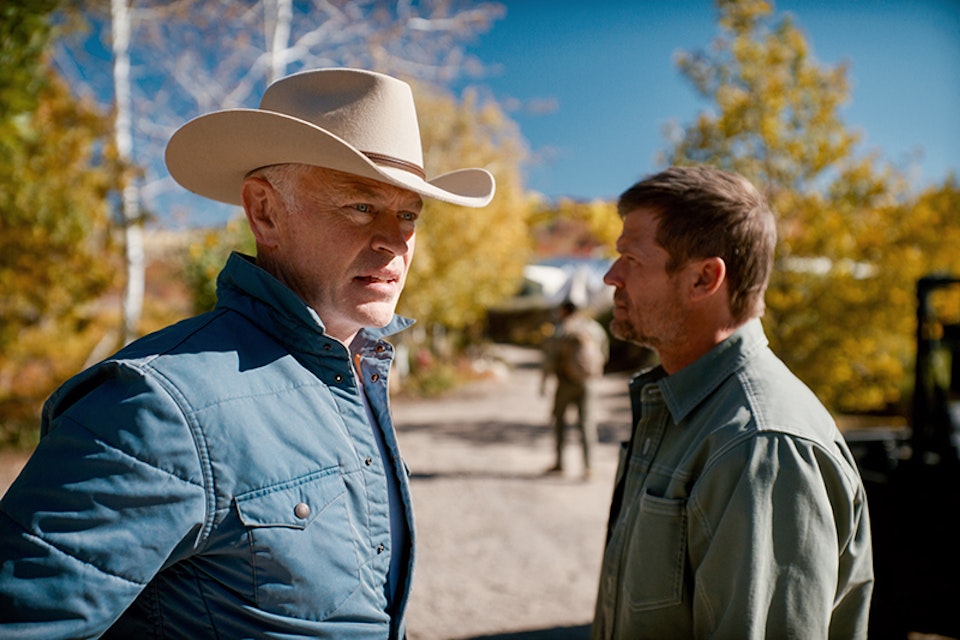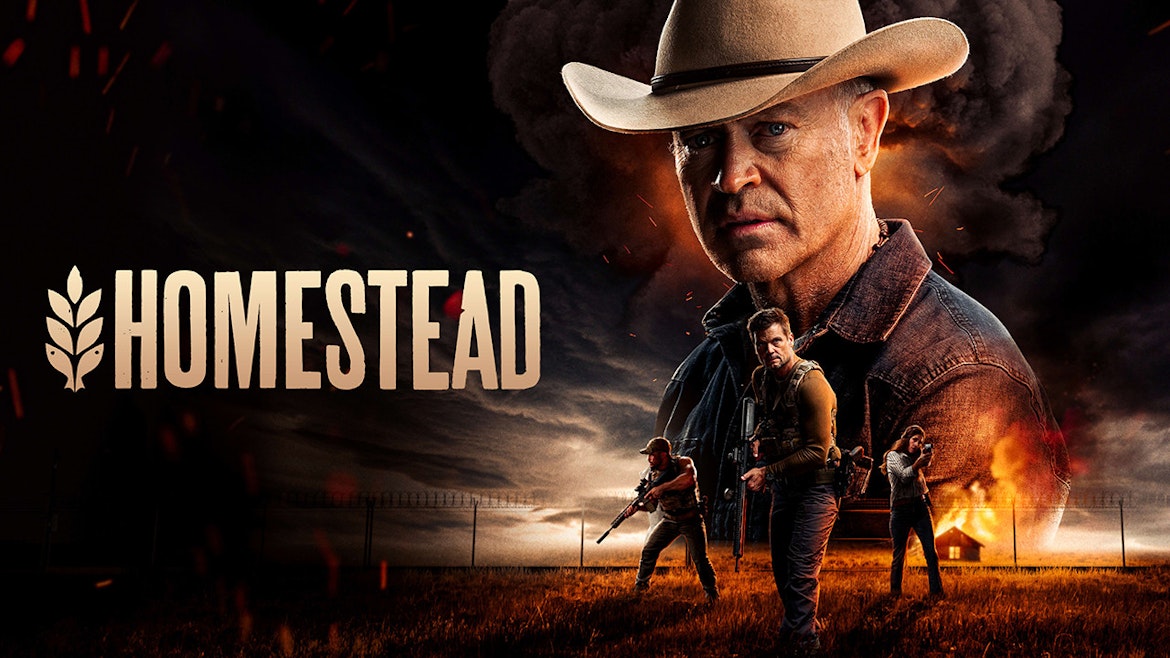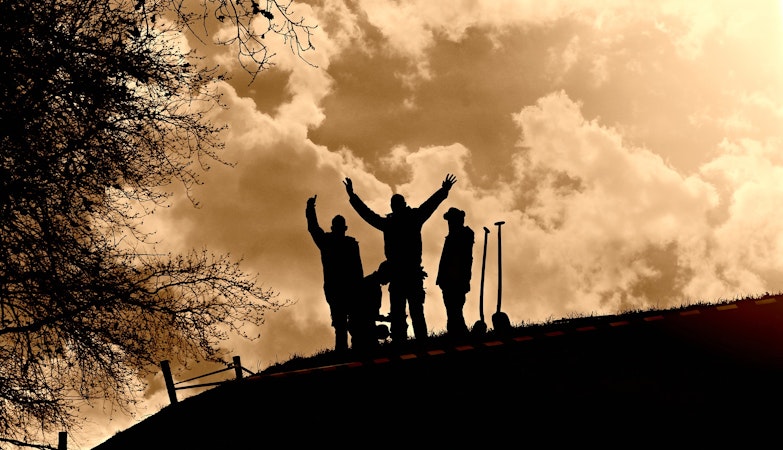I spent the morning of December 21st watching the new movie from faith based Angel Studios, “Homestead.” Based on the book “Black Autum” by Jeff Kirkman and Jason Ross, it details the characters response to a combined nuclear and cyber-attack on America. The movie tells the story of Ian Ross and his Mutual Assistance Group and their retreat property, “Homestead.” Be forewarned, there will be spoilers.
In this article I want to dig into some of the questions that the story raises for survivalists/preppers, but a few words about the movie are in order. As a movie fan, I appreciate good writing, good direction, and good acting. For the most part I find that studios of this nature do not have any of these. That is not the case here.
All of the aspects of this movie are on par with the best prestige television productions. It is not quite up to the standards of a good theater movie, but it is far better than some of the movies that I have spent money to sit in a theater and be bored by. I generally find that the message of most Christion faith films to be heavy handed, but that is not the case here.

Homestead tells the story of the collapse of American society following a combined terror attack on the US consisting of a nuclear event just offshore from Los Angeles and a cyber-attack that renders the East Coast without power. These events cause a collapse of the US government and a nationwide panic.
The Homestead is the survival retreat built by Ian Ross (Neal McDonough) and several families designed to keep them safe should an event like this happen. The other lead is Jeff Erickson (Bailey Chase), retired Navy Seal who has been hired to put together a security team for the property. The Ross family has built a place, and a system meant to support the people who will be living there with power, water, and food supplies as well as a small arsenal of firearms for protection. It is basically the dream set-up for survivalists.
The meat of the story is the practical and moral questions that are raised by the movie. These questions are important ones that need to be answered when making survival plans, before the world as we know it ends. First, at what point are we justified in using deadly force to defend ourselves. Second, should we lock down and keep friends and family who did not prepare or should we risk running low to save them.
The question of when to use force in self- or group-defense is a complicated one. Despite what one might think, a post-collapse situation makes the use of force even more complicated. In today’s environment the courts will sort out a defense situation. The defensive shooter should be cleared of any charges if they are justified in using force. In a post-collapse situation, where there are no courts to sort it out. In the movie there is a situation where people from outside accidentally wonder into Homestead property while hunting. A lack of a proper means of communications end with one of the hunters being killed by one of the Homestead members.

In the story, the person in question has to live with the results of his actions. It is correctly called an accident, but in the end, children are left without a father, and a wife is without a husband when they most need him. This is a situation that can be avoided through proper communication with the community around the property. It could also be avoided by placing those with more experience in perimeter security and crisis management.
The further consequences would likely come from the friends and family. They would most likely view it as an unjust killing and seek redress. I a world without courts, that redress might come in the form of an assault the property and more needless deaths.
The solution? Clear lines of communications before and after the event and well defined rules of engagement. Building a relationship with the surrounding community will allow group to define what the community can and cannot expect. It will give you a chance to encourage them to prepare for themselves and their family so that they can survive without outside help.
How incursions into the property are handled require very well defined rules of engagement and are an absolute necessity. How you communicate with intruders will define how the encounter ends. What you are aiming for is a peaceful resolution in the worst situation and not a violent encounter. If the group is very lucky, it may lead to new allies.
This takes us to a second major situation. What do you do with the friends and family at the gate. In the movie, when the country starts to collapse, friends of the Homestead family and people from the surrounding community start to line up at the gate looking for help. This is a real world question that all survivalists will face in a collapse.

Most people today, especially in America, are under the impression that the worst will never happen. As long as they have their video games, junk food, and televised sports, they continue to live their lives like it will never end. When it does, they will look to the prepared for help. How do we respond to this?
It comes down to two choices. Do you run them off or do you bring them in to add their skills to the community. Wandering into spoiler territory here, the movie suggests the latter. The Christian thing to do, it suggests, is to be charitable and bring them in. It is a boon in the end because some of these folks have skills that are lacking in the community, and they solve some important problems.
The movie is fiction, but it is close to what can be expected in a real collapse. Taking people in will reduce your supplies and can be detrimental to the survival of the members of community. On the other hand, if the people that you bring in have skills that will be important to the community, then they might improve the groups chances. This becomes a question of practicality versus morality and where a group falls between the two will have a profound effect on a community.
These are the most important issues in the situation the movie presents, but they do touch on others. One character suffers from a mental illness, I suspect Bi-Polar Disorder, but it is never clearly defined, that requires regular medication. How would this be handled? In the short term a stash of meds provided in a legal manner will keep the person in good health. After they run out a plan will be needed to properly handle the symptoms.
Then there is local government. A plot point is the local bureaucrat attempts who exerts his power to confiscate the supplies and weapons of the Homestead for “the good of the community.” As the story of Homestead is continuing with a series on the Angel Studios streaming service, I think that this will become a bigger plot point.
The questions that come to my mind is at what point has the Government truly collapsed? When does a local bureaucrat become a warlord bent on control? What will happen if the community comes into armed conflict with local government, win, and society makes a comeback? This last question is one brought to my mind for the first time by the movie. It seems that survivalists, me included, make their plans around a permanent collapse. In reality, a society will be rebuilt from the collapsed one, but it is just a likely that our society will rebuild itself. If it does, there may be legal issues to deal with if these kind of situations happen.
Unlike most post-apocalyptic movies, this is not only based on real world possibilities, but also on a series of books by Jeff Kirkham, a Green Beret who founded Readyman survival tool company with 29 years of experience, and Jason Ross, a serial entrepreneur who has spent his life learning survival skills. They took this experience, built a real world scenario, and applied their knowledge to the solutions used in the movie.
Every once in a while, I come across a bit of fiction that has a little bit of truth in it, but it is very seldom that it causes me to think this deeply into the questions that it raises. Dean Ing’s “Pulling Through” comes to mind because the second half of the book provides instructions on building the tools used in the fiction. “Homestead” does not delve into skills or techniques, but it raises some important questions that should cause viewers to think more deeply. It is also my hope that unprepared people who go to see an action movie will give what they see some thought and start to be a more ready.
The movie is a good piece of fiction that I enjoyed. The Christian part of the message is not heavy handed and takes a moral position that I think most people will understand. If you are putting together a preparedness plan, watching this movie should give you food for thought while enjoying a pretty good movie.
This article was originally published on Ready Magazine and is published here with permission. All images are courtesy of Angel Studios.









